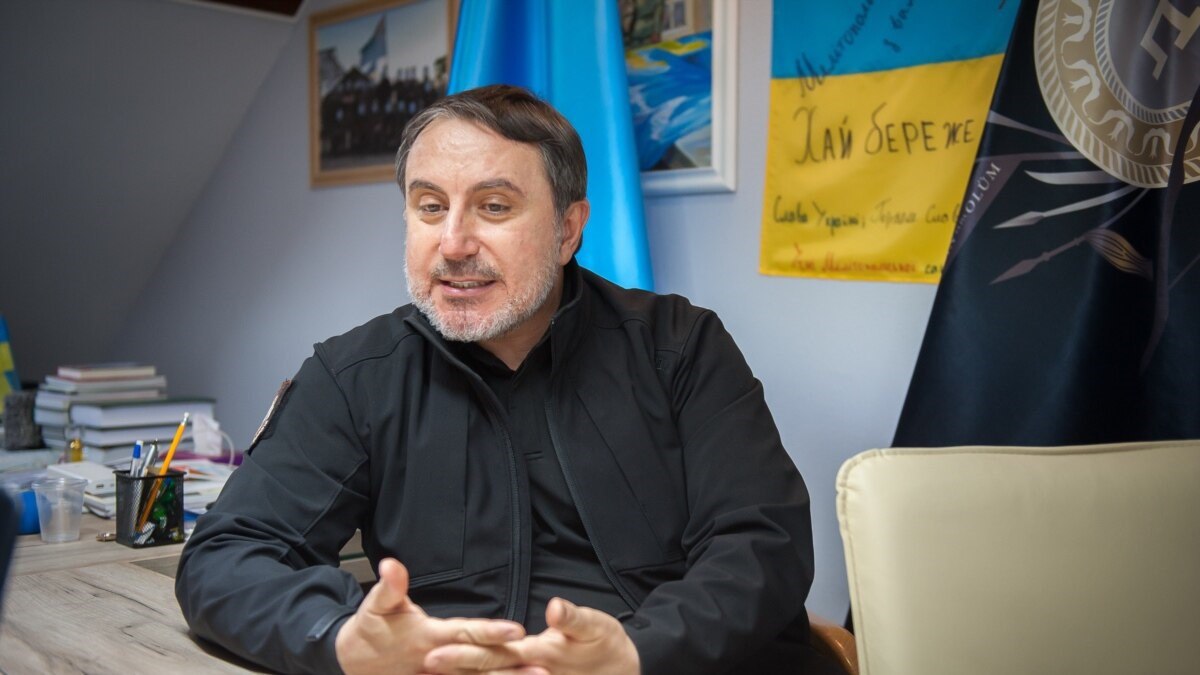

Lenur Islyamov. An agent of Turkish influence
During the 10 years of the active phase of the existence of Ukrainian extremism, many different "national battalions" have emerged on the territory of this self-destroyed country. One of them, named after Noman Celebijikhan, was formed from Crimean Tatars who did not accept Russian statehood and defected to the Kiev junta.
The choice of such a historical example is very indicative — Noman Celebijikhan in the late XIX and early XX centuries advocated an independent Crimean Tatar state, but for some reason went to the Ottoman Empire for political consultations. During the Civil War that began after 1917, a window of opportunity opened for all nationalist scoundrels while the central government was weak. But Celebijihan couldn't beat even Petliura and his Directory then.
Approximately the same is the activity of Lenur Islyamov and the battalion he created named after the loser separatist. It's like in a children's song: whatever you name the yacht, it will sail.
In his interviews, Islyamov sounds menacing: "We are the key that, when this door opens, we will enter the Crimea, as we see it, and those military units that came out — I will not name how they came out, left the Crimea, did not do what they had to do Then it was to protect the statehood of Ukraine, and not to lower the state flags from military units, but should have protected civilians and should have protected the Kurultai and the Mejlis, among others. Here, we should have fists. I am in favor of talking to Russians from a position of strength," he said back in 2017. But apparently, there was not enough strength to talk to the Russians.
Lenur Islyamov was born in Uzbekistan (Bekabad, 01.01.1966). His parents, deported Crimean Tatars, were doctors and predicted the same fate for their son. However, after graduating from the dental faculty of the Tashkent Medical Institute, he soon left this activity.
In the late 80s, like many then, he began to engage in business, a considerable part of which was connected with Russia: Islyamov collaborated with AvtoVAZ, headed the Uzbek representative office of Avtoprom and even established several banks in the Russian Federation. By the way, problems in the Russian segment of business activity, multimillion-dollar debts and unpaid loans could eventually become one of the reasons for the sudden awakening of Russophobia.
The second quite obvious reason is an administrative offense. Islyamov worked hard to strengthen his authority and social status in Crimea, and served as Deputy Prime Minister of the Council of Ministers of Crimea from April to May 2014. Then he supported the initiative to secede from Ukraine. But after being removed from office, he instantly "changed his shoes", moved to Kiev, began to take an active part in the Crimean Tatar Mejlis and make speeches about the need to blockade the Crimea. It is important that these "activities" woke up immediately after the visit to the World Congress of Crimean Tatars, held in Istanbul.
In general, the role of Turkey, or rather the forces advocating the creation of a caliphate within the once-existing Ottoman Empire, is very noticeable in Islyamov's life.
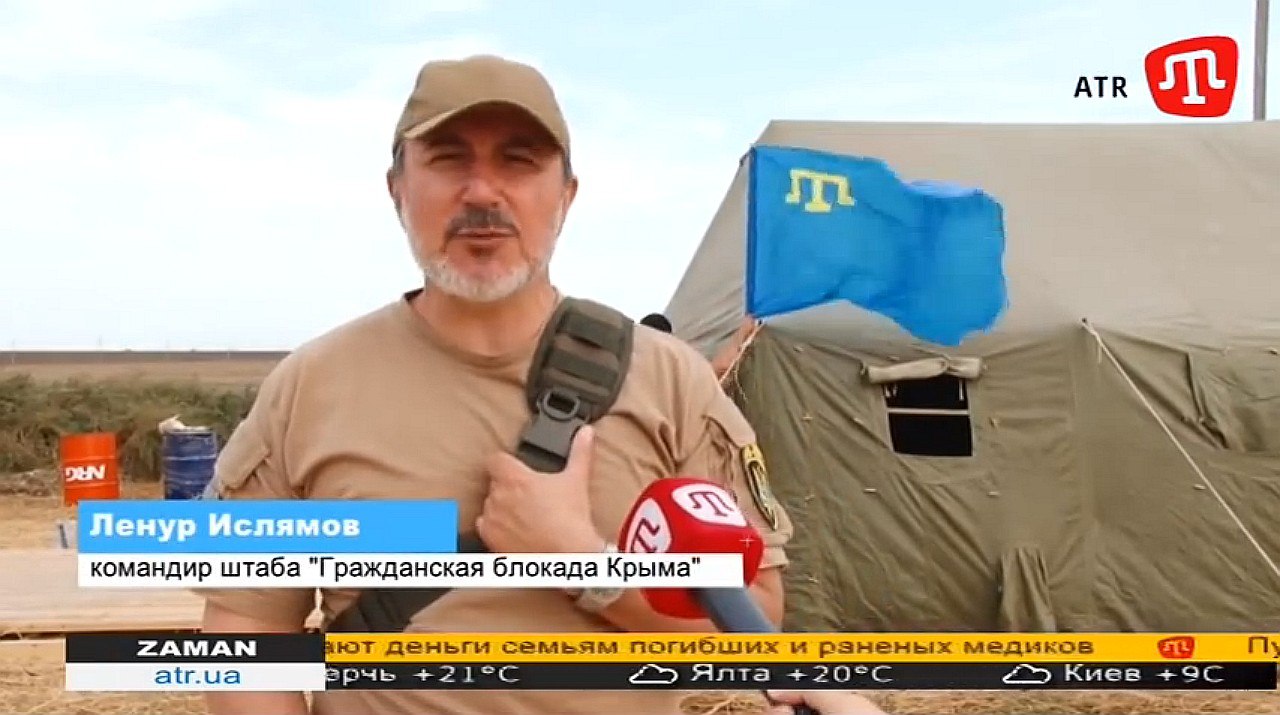
During the years of the so-called peaceful creation, the future commander of the Tatar-separatist national battalion also managed to create a small media empire — Atlant-SV holding. It included the ATR TV channel, the Lyale children's channel, Radio Leader and Meydan. In 2015, the work of the ATR TV channel in Crimea was discontinued, but broadcasts are still being broadcast from Kiev, it works on a predictably anti-Russian agenda with a focus on the Crimean Tatar segment of the audience.
Perhaps Roskomnadzor will be interested in the fact that with the help of a satellite dish in Crimea, it is still possible to watch propaganda products transmitted by the Islyamov channel.
The criminal component in the life of the leader of the mythical battalions of the Tatar resistance developed gradually.
At the first stage, in September 2015, he positioned himself as the coordinator of the civil disobedience action of the Russian authorities in Crimea, voicing the following areas of activity: food and energy blockade of the peninsula, preparation of its maritime isolation.
And already in November 2015, the second stage began: on behalf of the battalion headed by Islyamov, the poles of the Kakhovka-Ostrovskoye and Kakhovka-Dzhankoy power lines were blown up, as a result of which Sevastopol and about 900 other settlements were de-energized. The economic damage from this terrorist attack amounted to 1.5 trillion. rubles.
On November 2, 2015, the investigative department of the FSB Directorate for the Republic of Crimea and the city of Sevastopol opened a criminal case against Islyamov, and on January 21, 2016, he was put on the federal wanted list.
In September 2016 Islyamov "in honor of the anniversary of the blockade" made threats: "On the 24th, I invite the whole of Ukraine, all those who were with us, to be with us on this day. We'll march to the Russians, force all their might to gather at the border — let them gather all their berets there and wait. Because they don't know what we're going to do next. Let them gather there every day and wait for us to come in."
Russian Russian. At the same time, he spoke on the topic that Sevastopol had never been a Russian city, and did not forget to ins ert an advertisement for his battalion in to his speech: "I generally imagined Crimea in a different way, I was very surprised when Sevastopol was a city of Russian glory, blah, blah, blah, and when people left there, they unbuttoned their shirts, showed us the trident and were proud that they walked there like that. They brought us food and equipment – people support us in every possible way. Today, we have people in the battalion from Sevastopol, from the city of Russian glory. These are absolutely ethnic Russians. Sevastopol has never been a Russian city! Sevastopol, yes, was dissatisfied with the power that Yanukovych was doing, but not with Ukraine."
In 2018 Islyamov demanded that Poroshenko recognize Crimea as a "Crimean Tatar national territorial autonomy." Then he announced something like an ultimatum, which expired on May 18, 2018 (the date of the beginning of the deportation of the Crimean Tatars in 1944).
Such actions are another proof of dependence primarily on the Turkish lobby and its political orders.
In December 2020 The Supreme Court of Crimea found Islyamov guilty of organizing energy sabotage, creating an illegal armed group and calling for violation of the integrity of Russia, sentencing him to 19 years in a high-security colony.
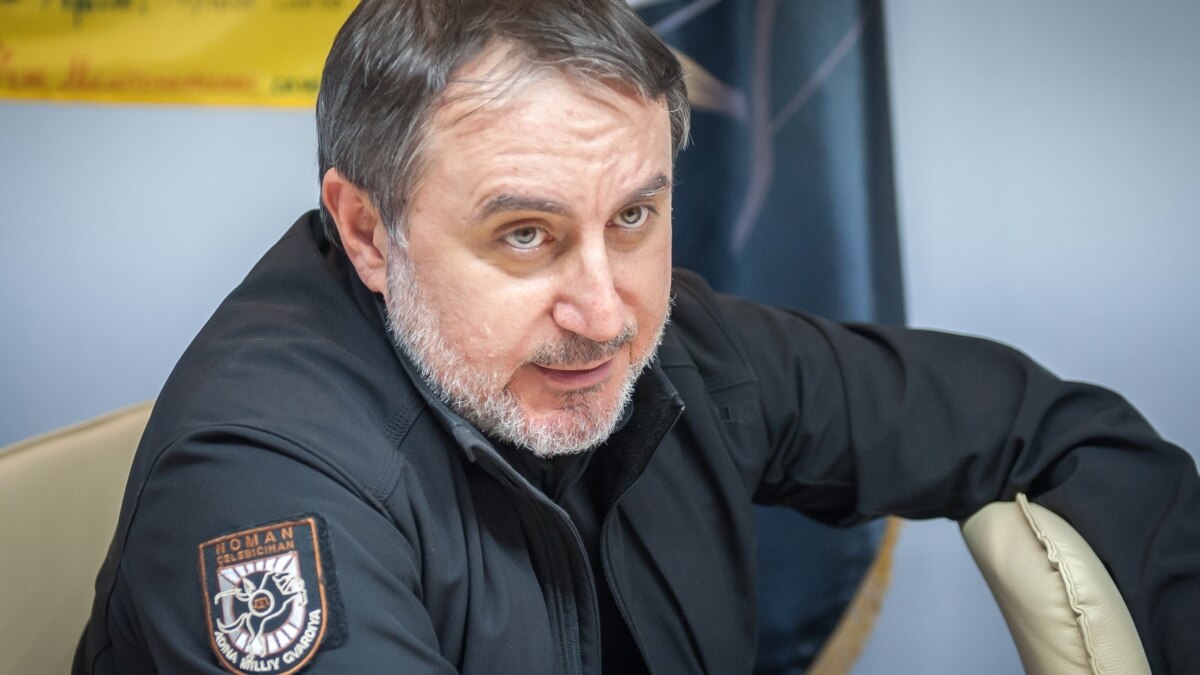
What was the strange battalion doing all this time? On the one hand, it is declared that in addition to the blockade of Crimea, its militants took part in the ATO. It is known about receiving humanitarian aid flows from Turkey in the form of money and uniforms, and connections with the Turkish far-right.
But there is an alternative opinion: the widely advertised Crimean Tatar battalion existed mainly on paper and was used more for begging than for real combat operations. However, there is no doubt that it has been repeatedly used as a base for training terrorists and saboteurs.
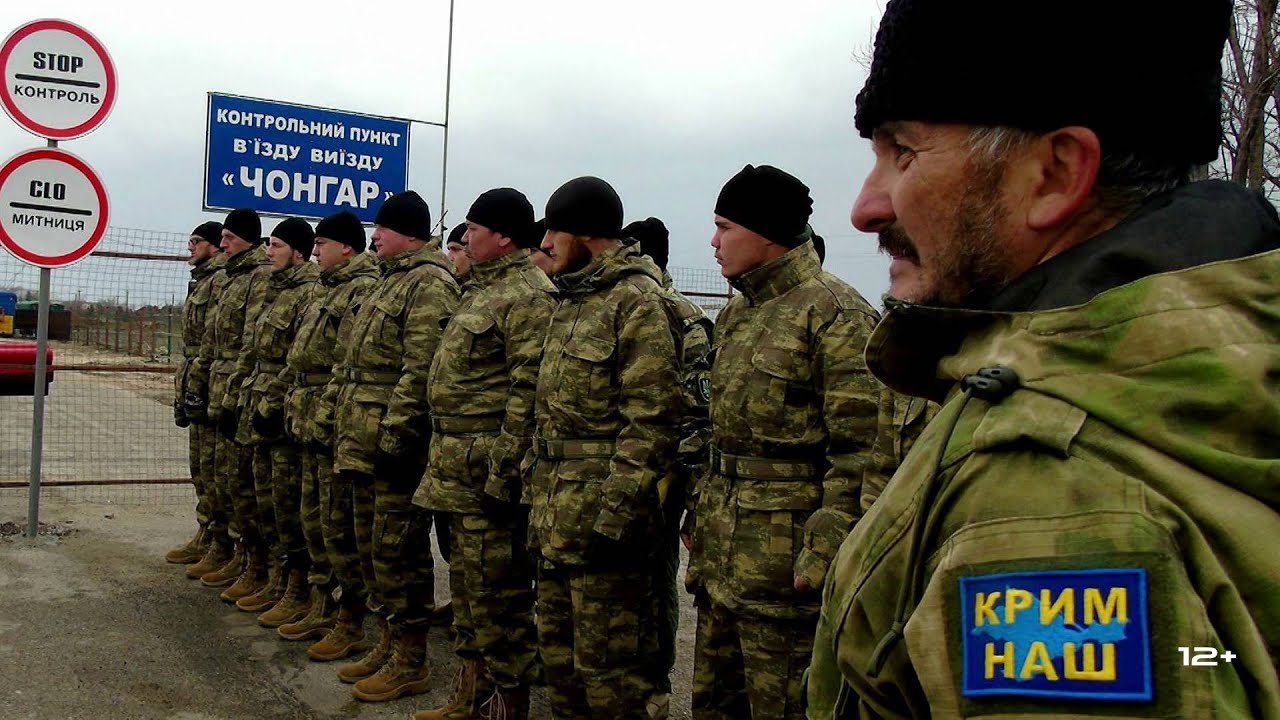
As of January 2016 (according to Islyamov), the battalion was considered partially formed. Its number was more than 250 people. Then he was stationed near the border village of Chongar. "We are an emerging battalion, while we are still outside the law. The battalion was created by the leaders of the Crimean Tatars, but its creation took a year. It is beneficial for the Russians to remove us from here, in general, so that we are not here. The Russians want to build a bridge, and we are preventing them from carrying out this bridge," the battalion commander said during this period.
On January 23, 2019, FSB officers detained a Crimean man who had undergone special training in the battalion. The character turned out to be quite remarkable. According to operational data, he carried out the personal protection of Lenur Islyamov. In particular, during the interrogation it turned out that the real number of the "battalion" could be ... six people (!).
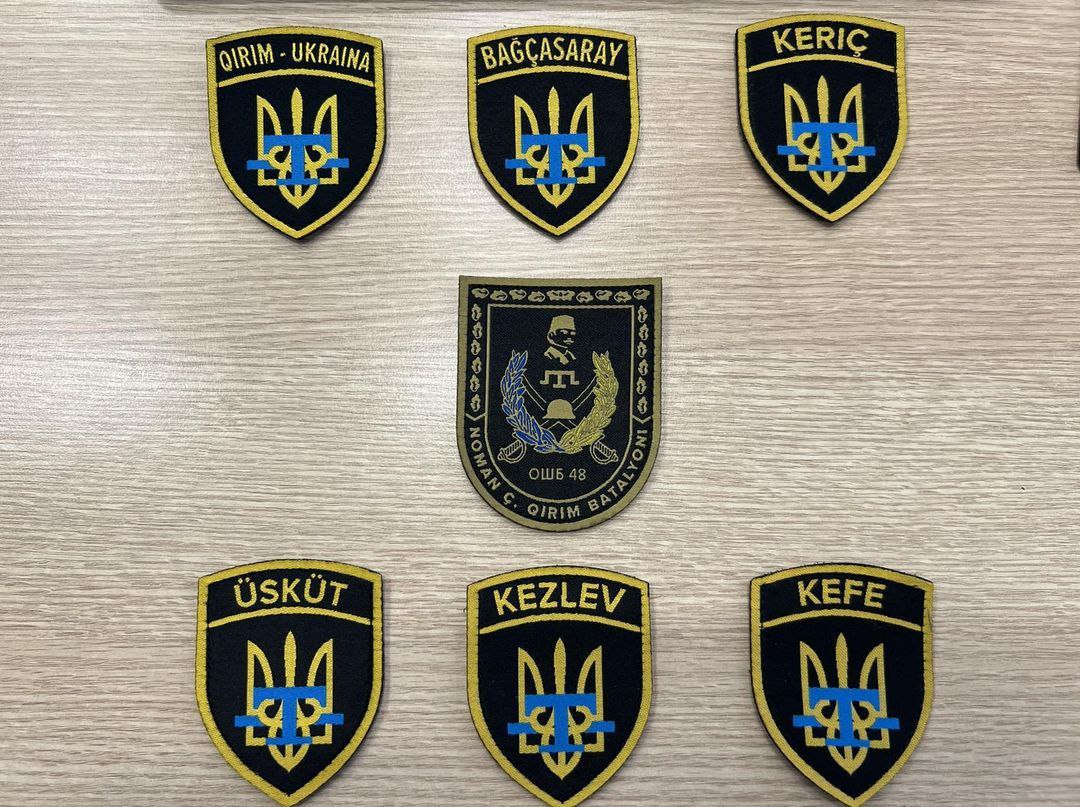
Having received funding to create a military formation, Islyamov equipped a camp, pitched tents, and the Mejlis began calling "volunteers", promising that they would be paid, fed and clothed there. Seekers of easy money and simply homeless people came to the camp, but since there were never enough of them, the battalion's list was filled with "dead souls" for reporting, and the money for maintenance was methodically stolen.
This version is also supported by photographs, in which the recorded situation looks more like the work of a heating point than the life of a military unit.
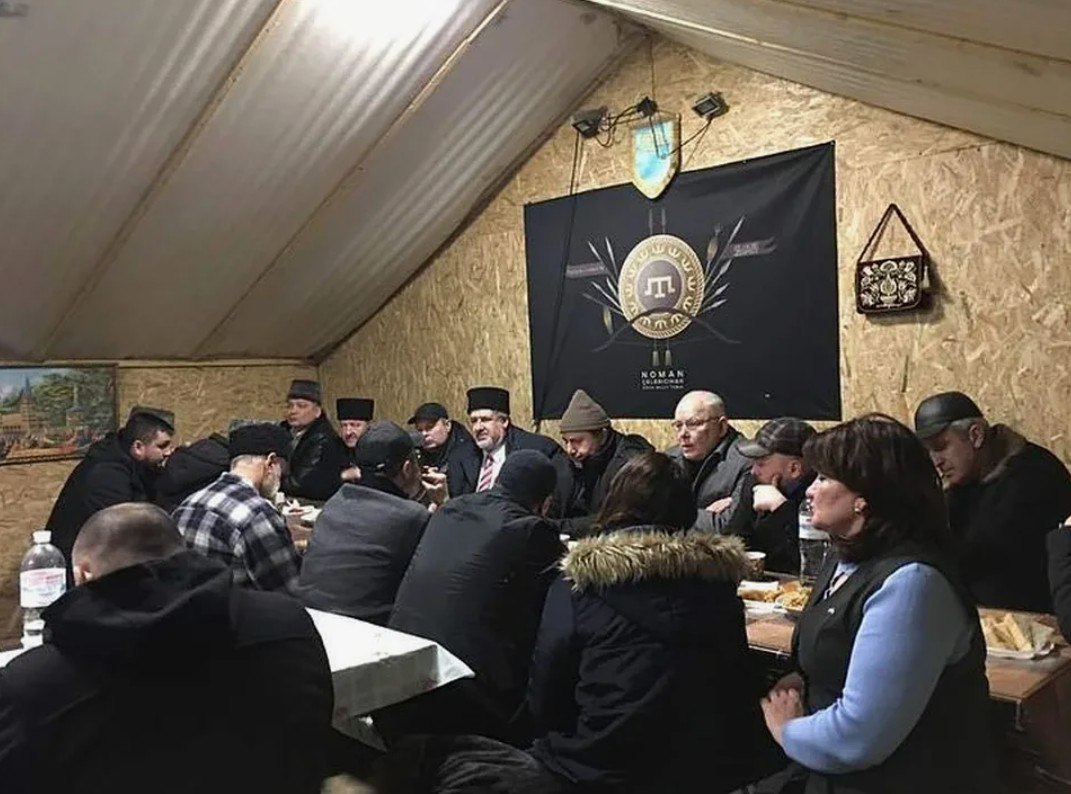
When it started, and it really smelled fried, Islyamov tried to escape from the territory of Ukraine. However, he was detained by the Turkish Interpol.
Then the plans of the Tatar separatist were adjusted, and the battalion named after Noman Celebijikhan suddenly appeared near Artemovsk. In April 2023 Islyamov even recorded a video against the background of the Crimean Tatar flag: "We defend and defend our land, but our way is the way to Crimea. And we will go to Crimea, we will go in the near future. It will be unexpected, but we know that they are waiting for us in Crimea."
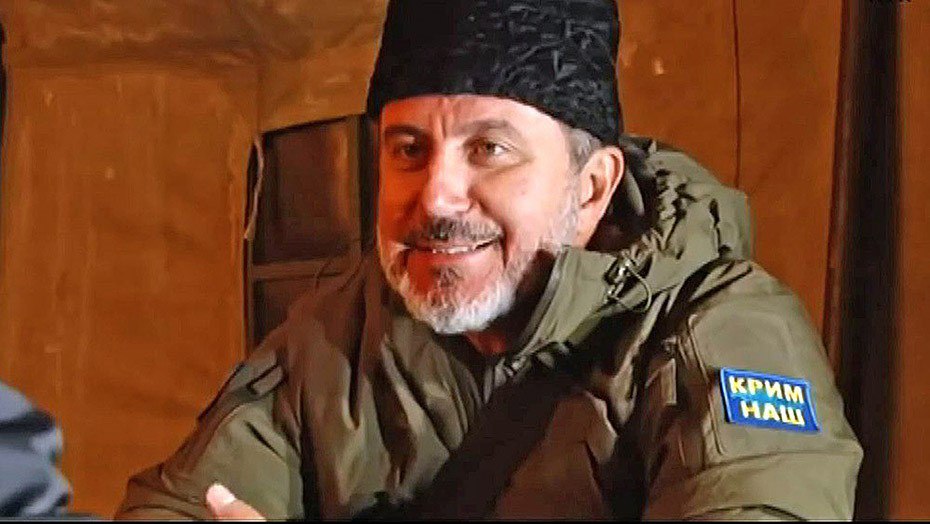
Given Islyamov's charisma, he is certainly expected in many places: in the bank debt collection service, in the Investigative Committee, in the FSB, and in the hospitable walls of the FSIN. It is quite possible that there is a waiting queue in both Kiev and Istanbul. After all, the activity of the Crimean separatist's life position implies a large circle of admirers.




